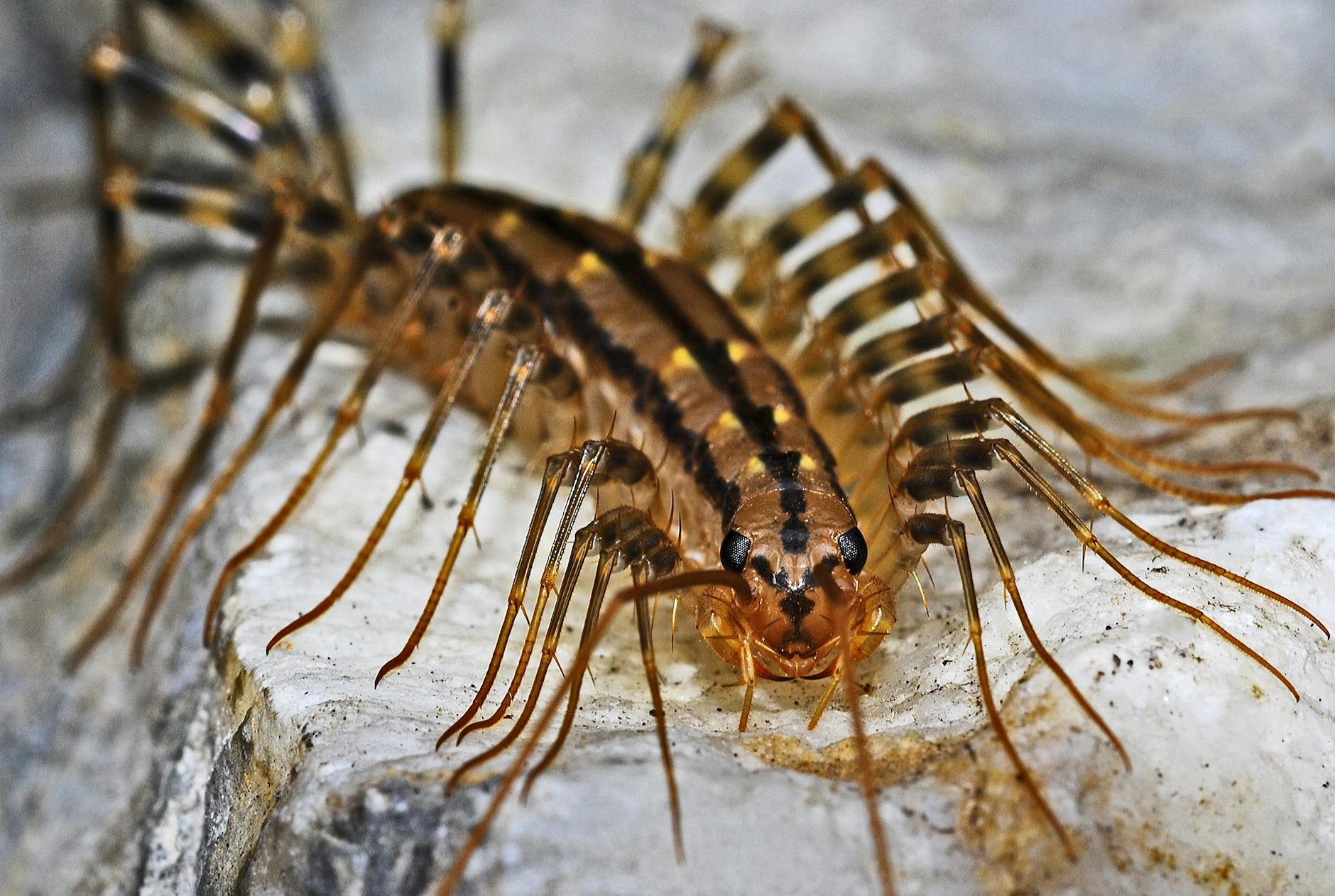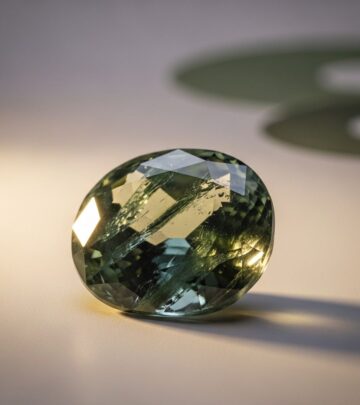House Centipede Benefits: 4 Pest-Controlling Allies At Home
Discover the hidden benefits of house centipedes and learn why these surprising predators are actually your home's best line of defense against common pests.

Why You Should Never Kill a House Centipede
When you spot a house centipede scurrying across your floor, your first instinct might be to grab a shoe and squash it. But before you act, consider this: house centipedes are some of the most beneficial creatures you can find indoors. Despite their unsettling appearance, these nocturnal predators are natural pest controllers, helping to keep your living space free of some of the most unwelcome home invaders.
What Is a House Centipede?
House centipedes (Scutigera coleoptrata) are fast-moving, long-legged arthropods commonly found in homes, especially in damp, dark areas like bathrooms, basements, and closets. Growing up to 1.5 inches in length and sporting 15 pairs of legs, they’re hard to miss. While their appearance may seem alien and even frightening, they’re far less menacing than they look—and they play a crucial role in your home’s ecosystem.
- Color: Yellowish-grey bodies with three dark stripes running down the back.
- Legs: 15 pairs of long, delicate, banded legs, giving them a “feathery” look.
- Movement: Incredibly fast runners, capable of darting quickly out of sight.
- Habitat: Prefer dark, damp spaces (bathrooms, basements, crawl spaces).
Why Do House Centipedes Enter Homes?
Unlike many pests that invade our homes searching for food scraps or shelter, house centipedes generally come inside for two main reasons:
- Moisture: They thrive in humid environments, so areas with excess moisture (like leaky pipes or poorly ventilated rooms) attract them.
- Food Source: House centipedes follow their prey—other insects and arthropods that already inhabit your home. If you see centipedes, it’s often a sign you have other pests as well.
Nature’s Built-In Pest Control
Here’s the real reason to reconsider harming the next centipede you see: they are voracious predators of some of the most problematic household pests. Unlike many insects that simply coexist with your household, house centipedes actively hunt:
- Cockroaches
- Silverfish
- Termites
- Bed bugs
- Ants
- Spiders
- Moths
- Flies
House centipedes use their speed and specialized legs to capture and paralyze their prey quickly . Their presence naturally reduces the numbers of far more destructive pests, acting as an eco-friendly pest management system inside your home.
How House Centipedes Hunt
- House centipedes are nocturnal hunters—most of their activity happens at night while you’re asleep.
- They patrol nooks, crannies, and dark corners, searching for insects and arachnids to eat.
- Their venomous fangs quickly subdue prey, but these fangs are too small to seriously harm humans.
- Each female can lay dozens of eggs at once, multiplying their pest-control benefits without becoming visible infestations .
The Myth of Dangerous Centipedes
It’s a common misconception that house centipedes are dangerous. In reality, they are not considered harmful to humans or pets. They do possess venom, but their jaws are typically not strong enough to penetrate human skin. Bites are extremely rare and, at worst, cause mild skin irritation.
Reasons House Centipedes Are Not a Threat
- They avoid humans and scurry away from light and vibrations.
- Their bodies and legs are fragile, making direct contact with people unlikely.
- They do not damage property, fabric, or food supplies .
Common Myths About House Centipedes
| Myth | Reality |
|---|---|
| House centipedes are dangerous and venomous to humans. | They are not aggressive and rarely bite; their venom is harmless to people and pets . |
| House centipedes indicate a dirty home. | They follow food sources (other pests), not dirt or clutter. Clean or not, any home can attract them if there are insects present. |
| More centipedes mean an infestation is brewing. | Their numbers are usually self-regulating, and they help keep other pest populations in check . |
The Benefits of House Centipedes in Your Home
If you tolerate the sight of house centipedes, you’ll be rewarded with several advantages:
- Natural pest management: They reduce populations of cockroaches, termites, spiders, and more—many of which can carry disease or damage property .
- Eco-friendly solution: Allowing centipedes to thrive means you won’t need to resort to harsh chemical pesticides.
- Silent workers: They do most of their hunting at night, staying out of sight and mind.
- Indication of other pests: Their presence alerts you that you may have an underlying insect problem that needs attention.
What To Do If You Can’t Stand House Centipedes
Not everyone can get comfortable sharing their home with such leggy guests. If house centipedes make your skin crawl, there are ways to minimize their presence without resorting to killing them:
- Reduce Humidity: Use dehumidifiers, fix leaky pipes, and ventilate damp areas, especially basements and bathrooms .
- Seal Cracks and Gaps: Close entry points around your home’s foundation, windows, and doors with caulk or weatherstripping .
- Eliminate Food Sources: Focus on getting rid of other household pests—if there’s nothing for them to eat, centipedes won’t stick around .
- Use Screens: Install screens on drains, vents, and sump pumps to block entry points.
- Keep It Clean: Vacuum regularly, especially in dark, neglected spaces where pests might hide.
Natural Repellents
- Essential oils, such as peppermint, tea tree, and lavender, can deter centipedes. Dilute a few drops in water and spray along baseboards or known entry points .
- Sticky traps are another non-toxic way to monitor and minimize centipede populations. Place these in corners, behind appliances, and along walls .
Professional Solutions
If you’re facing a serious infestation (which is rare for house centipedes), consult a reputable pest control professional. They can assess the problem and offer eco-friendly, targeted solutions.
How To Safely Remove a House Centipede
If you encounter a house centipede and want it gone without killing it, consider these humane approaches:
- Use a glass and a piece of cardboard or stiff paper to gently trap and release the centipede outside.
- Guide it toward an open door or window with a broom.
- If you catch one in a sticky trap, release it by gently lifting it off with a stick outdoors.
Frequently Asked Questions (FAQs)
Are house centipedes dangerous to humans?
No, house centipedes are not considered dangerous. Their venom is harmless to people and pets, and they rarely bite; even then, their jaws are too weak to break human skin .
Do house centipedes indicate a dirty home?
Not necessarily. House centipedes are attracted to homes with other insects, not dirt or clutter. Their presence often signals a secondary pest issue rather than poor hygiene.
Will house centipedes infest my home?
Unlike other pests, house centipedes do not cause structural damage or infest food. They self-regulate and require a food source (other insects), so eliminating their prey reduces centipede numbers .
Can I completely get rid of house centipedes?
It’s difficult to eliminate house centipedes entirely without also eliminating every other insect in your home. The best approach is to make your home unattractive to all pests (including their prey) by keeping spaces dry, clean, and tightly sealed .
What should I do if I see a house centipede?
It’s best to leave it alone, as it’s likely helping control other pests in your home. If you must remove it, use a catch-and-release method rather than killing it.
Conclusion: Embrace the Unexpected Ally
While house centipedes may appear frightening, they are, in fact, one of nature’s most effective pest control agents for your home. By preying on cockroaches, termites, silverfish, and other pests, they offer a safe, natural alternative to chemical treatments. Learning to accept—if not appreciate—their presence can result in a healthier, more balanced household ecosystem. So, next time you see a house centipede racing across your wall, resist the urge to squash it, and remember the silent work it does on your behalf.
References
Read full bio of Srija Burman










